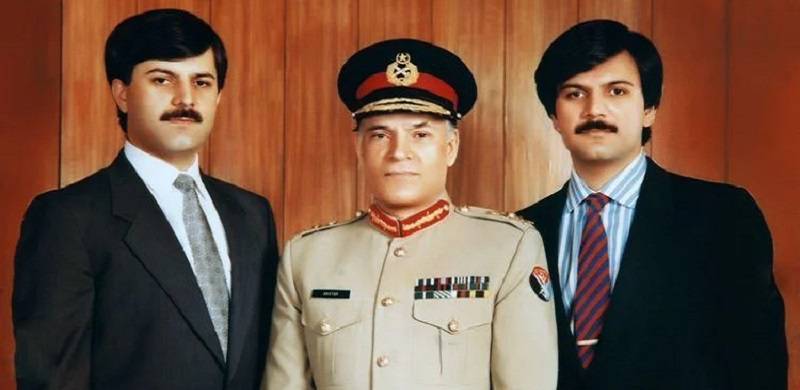
Numerous global political figures, including the sons of former Director-General Inter-Services Intelligence (DG ISI) General Akhtar Abdur Rahman Khan who was appointed by General Zia-ul-Haq, have been named in a leak of secret banking data from Credit Suisse disclosing many 'problematic' bank accounts opened by the Swiss bank.
According to the Organised Crime and Corruption Reporting Project (OCCRP), the data purports to reveal up to $8 billion in assets held by 'potentially problematic' clients, including "spy chiefs and their relatives from Jordan, Yemen, Iraq, Egypt, and Pakistan". The data includes accounts opened from the 1940s to the 2010s, but does not disclose current account data.
Among the names mentioned in the OCCRP report is General Akhtar Abdur Rahman Khan, who served under General Zia-ul-Ha, and is widely credited with facilitating the Afghan Mujahideen in their struggle against the Soviet invasion in Afghanistan. Although the general was never charged, it was suspected that he funnelled aid and billions in cash from the US, Saudi Arabia, and other countries to the Mujahideen, the New York Times reported.
One account was reportedly opened in the name of Akhtar's three sons in 1985; by 2003 the account held up to $3.7 million. A second account was reportedly opened in 1986 in the name of just one son and was worth approximately $9.2 million in 2010. According to an unnamed intelligence source quoted by the OCCRP, "It was easy at that point in time to open Swiss banking accounts of any manner or type for transfer of overt funds. Akhtar was doing it to fill his own pockets,” the source claimed. “A lot of money was siphoned off from the Afghan war and into his bank accounts.”
When asked about the accounts, Akhtar's sons said the information was "not correct" and "conjectural." No charges have ever been brought against any of the Rahman Khan family.
General Akhtar died in 1988, in the same plane crash that killed General Zia, United States Ambassador, Arnold L. Raphel, and other senior officers of the Pakistan army.
According to the Organised Crime and Corruption Reporting Project (OCCRP), the data purports to reveal up to $8 billion in assets held by 'potentially problematic' clients, including "spy chiefs and their relatives from Jordan, Yemen, Iraq, Egypt, and Pakistan". The data includes accounts opened from the 1940s to the 2010s, but does not disclose current account data.
Among the names mentioned in the OCCRP report is General Akhtar Abdur Rahman Khan, who served under General Zia-ul-Ha, and is widely credited with facilitating the Afghan Mujahideen in their struggle against the Soviet invasion in Afghanistan. Although the general was never charged, it was suspected that he funnelled aid and billions in cash from the US, Saudi Arabia, and other countries to the Mujahideen, the New York Times reported.
One account was reportedly opened in the name of Akhtar's three sons in 1985; by 2003 the account held up to $3.7 million. A second account was reportedly opened in 1986 in the name of just one son and was worth approximately $9.2 million in 2010. According to an unnamed intelligence source quoted by the OCCRP, "It was easy at that point in time to open Swiss banking accounts of any manner or type for transfer of overt funds. Akhtar was doing it to fill his own pockets,” the source claimed. “A lot of money was siphoned off from the Afghan war and into his bank accounts.”
When asked about the accounts, Akhtar's sons said the information was "not correct" and "conjectural." No charges have ever been brought against any of the Rahman Khan family.
General Akhtar died in 1988, in the same plane crash that killed General Zia, United States Ambassador, Arnold L. Raphel, and other senior officers of the Pakistan army.

